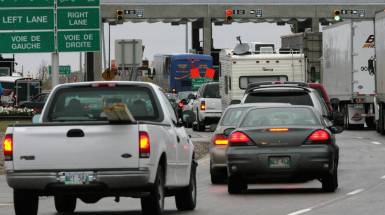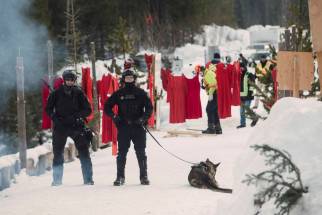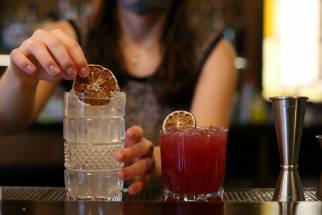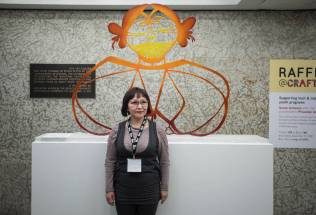Dry, but not boring As abstaining from alcohol becomes more normalized, we’re realizing holiday cheer doesn’t have to come with a hangover
Read this article for free:
or
Already have an account? Log in here »
To continue reading, please subscribe:
Monthly Digital Subscription
$0 for the first 4 weeks*
- Enjoy unlimited reading on winnipegfreepress.com
- Read the E-Edition, our digital replica newspaper
- Access News Break, our award-winning app
- Play interactive puzzles
*No charge for 4 weeks then price increases to the regular rate of $19.00 plus GST every four weeks. Offer available to new and qualified returning subscribers only. Cancel any time.
Monthly Digital Subscription
$4.75/week*
- Enjoy unlimited reading on winnipegfreepress.com
- Read the E-Edition, our digital replica newspaper
- Access News Break, our award-winning app
- Play interactive puzzles
*Billed as $19 plus GST every four weeks. Cancel any time.
To continue reading, please subscribe:
Add Free Press access to your Brandon Sun subscription for only an additional
$1 for the first 4 weeks*
*Your next subscription payment will increase by $1.00 and you will be charged $16.99 plus GST for four weeks. After four weeks, your payment will increase to $23.99 plus GST every four weeks.
Read unlimited articles for free today:
or
Already have an account? Log in here »
Hey there, time traveller!
This article was published 03/12/2021 (1470 days ago), so information in it may no longer be current.
Nicole Murdock hasn’t had a hangover in 10 years.
“It’s so nice to never have to worry about that,” the Winnipeg writer and university student says with a laugh. “Other than that, I don’t think my life has changed very much — I’m still an incredibly social person; I still get invited places.”
Sociably sober
Drinks writer Ben Sigurdson’s sober tipple suggestions this holiday season
For those who choose not to drink, heading to a gathering with family and friends need no longer mean guzzling pop or suffering the mediocre selection of non-alcoholic wine and beer available at most big grocery stores.
As the sober/sober-curious movement has picked up steam, a number of private wine stores, beer vendors and other smaller retailers have managed to find products that are better-made (and better-tasting) than what’s traditionally been available in the province.
One such example is the Sober Carpenter line of non-alcoholic beers, whose lineup includes a red ale, blonde ale, IPA and wheat beer.
La Boutique del Vino (1360 Taylor Ave.) has brought in a line of zero-alcohol sparkling wines and low-alcohol beers from Soft Crush, a Vancouver-based importing agency that specializes in low/no-alcohol products. Offerings include very good bubblies from Thomson & Scott and Oddbird. La Boutique also carries a pale ale, IPA and stout-style low-alc (less than 0.5 per cent) brews from Vancouver’s Big Drop Brewing Co., also imported through Soft Crush, as well as zero-alc canned mocktails from Clever Mocktails.
De Luca Fine Wines (942 Portage Ave.), meanwhile, carries the Atypique line of non-alcoholic canned mocktails, which includes drinks fashioned after the gin and tonic, rum and cola and mojito. They’ve also got a line of non-alcoholic spirits, as well as the sparkling Töst, infused with white tea, white cranberry and ginger. And Kenaston Wine Market (1855 Grant Ave.) stocks the Cawston Press line of apple-based beverages — non-alcoholic ciders, sparkling lemonades and the like.
On the local front, Good Neighbour Brewing Company, currently brewing at Oxus Brewing Co. at 1180 Sanford St., has released a zero-alcohol sparkling hop water featuring Eukanot hops and passionfruit; it’s available at Oxus as well as select beer vendors, and Good Neighbour is looking to roll it out to other local retailers, such as Black Market Provisions on Osborne Street, soon.
Solbrü’s range of non-alcoholic herb-infused drinks, meanwhile, continue to fit in nicely where a spirit-based cocktail would otherwise have; they’re available at most private wine stores and specialty grocery stores.
— Ben Sigurdson
It was a hangover (a particularly bad one) and a night of missing memories that prompted her to get sober in the first place. She was 22 years old at the time and remembers thinking, “If I don’t get a handle on this, it’s going to affect the relationships that are very near and dear to me in a negative way.” It was a risk she wasn’t willing to take.
In the decade since, Murdock has made a point of talking openly about abstaining from alcohol — in private conversations and public forums, such as social media. Sharing is part accountability and part outreach.

“I just feel like it does more to normalize that option; a lot of things do revolve around alcohol,” she says, adding that sobriety seems to be gaining popularity. “It’s more common than you think.”
Bill Smitheringale, knowledge broker with the Addictions Foundation of Manitoba, has also noticed a shift in attitudes around alcohol consumption. He chalks it up to the power of social media — sober influencers are a growing subset across many platforms — and the rise of alcohol-free challenges, such as Dry January and Sober October, both of which started as public health campaigns.
“I think that society is changing with all sorts of awareness,” he says. “People choose not to drink for all sorts of reasons… and I think we’re more willing to talk about it.”
Even with a new wave of sober and sober-curious people, the holidays can put a wrench in abstaining. December is the most indulgent time of the year, when free time and alcohol-fuelled social engagements are bountiful. It’s also emotional.
“That can run the gamut from happiness and joy and connectedness, to anxiety, depression and maybe loneliness,” Smitheringale says. “And alcohol can be a way of coping.”

It was mid-November when Murdock decided to stop drinking. While the early days of her journey were buoyed with support from family, friends and an addictions counsellor, the timing was a challenge. Within weeks of quitting she was attending Christmas parties and New Year’s celebrations. A shift in mindset helped ease the anxiety.
“You’re throwing yourself into a really chaotic time of the year to maintain or start sobriety for the first time,” she says. “But for me, beginning it at that time of year, it almost felt like a debut opportunity.”
Gatherings were a chance to reintroduce herself as a sober person to everyone all at once. It was like ripping off a bandage.
For Caitlin MacGregor, the holidays were a big adjustment.
“There was no way I was going to a holiday party where alcohol was served and not partaking,” she says of her attitude prior to giving up drinking in October 2019. Communication, a solid support network and kombucha helped her get through that first season, as well as a vacation to an all-inclusive resort.
The next hurdle was something no one could’ve predicted.
“I was so thankful to have gotten sober before the pandemic,” says MacGregor, who works for the province. “The stress and anxiety and just so much time sitting around… I probably would’ve drunk even more so.”
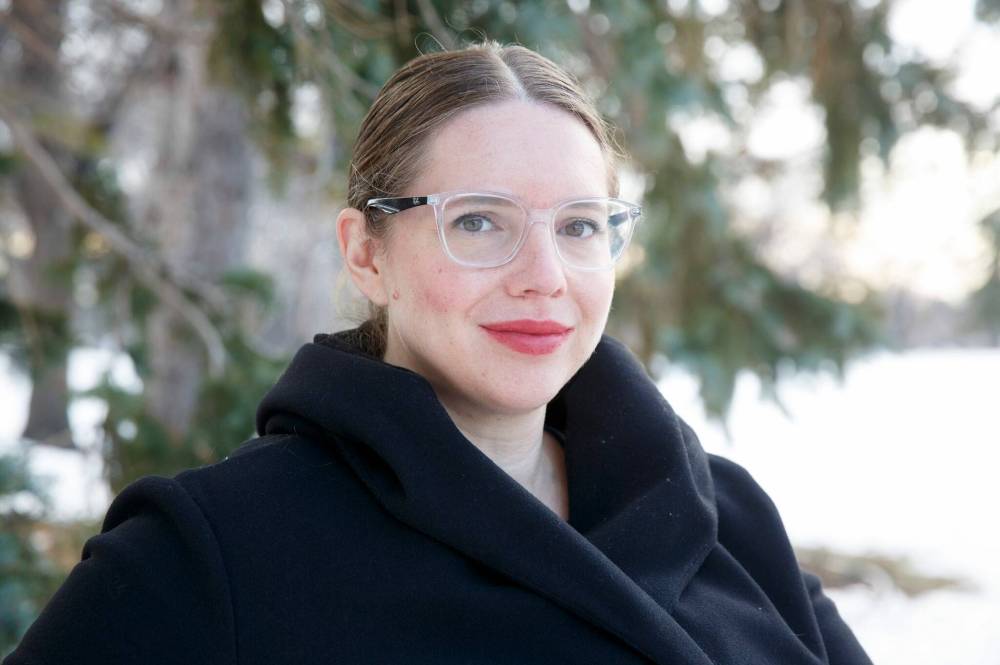
Consumption has indeed increased amid the global health crisis. In a survey conducted by the Canadian Institutes of Health Research, 23 per cent of respondents reported drinking more now than compared to pre-pandemic times.
While the world outside remains scary, the last 19 months have given MacGregor an opportunity to focus on sobriety without temptation.
“It became a lot easier,” she says. “There was no going to bars, there were no house parties or any of that.”
Last year, holiday gatherings were barred under strict public health restrictions. This year, thanks to high vaccination rates, the season is feeling a bit more festive. MacGregor isn’t worried about the prospect of a return to normal socializing.
“It gets easier with time and you develop new coping mechanisms that work for you,” she says. “And, I mean, you can make new traditions. If there’s friends that you usually meet up with over the holidays to go for drinks, maybe you go for brunch instead. If you like having rum and eggnog around, maybe you discover a new favourite mocktail.”
Jeff Bromley’s new favourite tradition is being a designated driver.
“I can drive my loved ones home and make sure they’re good to go,” he says. “That’s a good feeling; I never knew what that was like until I did it.”
It’s been three years since Bromley has ingested drugs or alcohol — three years, one month and 27 days according to the app he uses to track his progress. Sobriety was a necessary step in gaining more control over his life; he was sick of feeling terrible and waking up with little recollection of what had happened the night before. Still, abstinence felt like a leap of faith.

“There’s a certain level of FOMO (fear of missing out) that people have, that if they don’t drink they might miss out on something or not be included in the celebration,” says Bromley, who writes poetry and works as a delivery driver. “But in my experience, I missed out far more when I woke up the next day saying, ‘What happened?’”
For years, that fear stopped him from pursuing sobriety. Today, he realizes those concerns were overblown.
“Nobody really cares if you’re drinking or not drinking,” he says. “It’s not as noticeable as you might think.”
That seems to be a common epiphany.
“I would be the one overthinking it ahead of time,” MacGregor says. “I’ve found that no one is thinking about what’s in my cup as much as I am.”
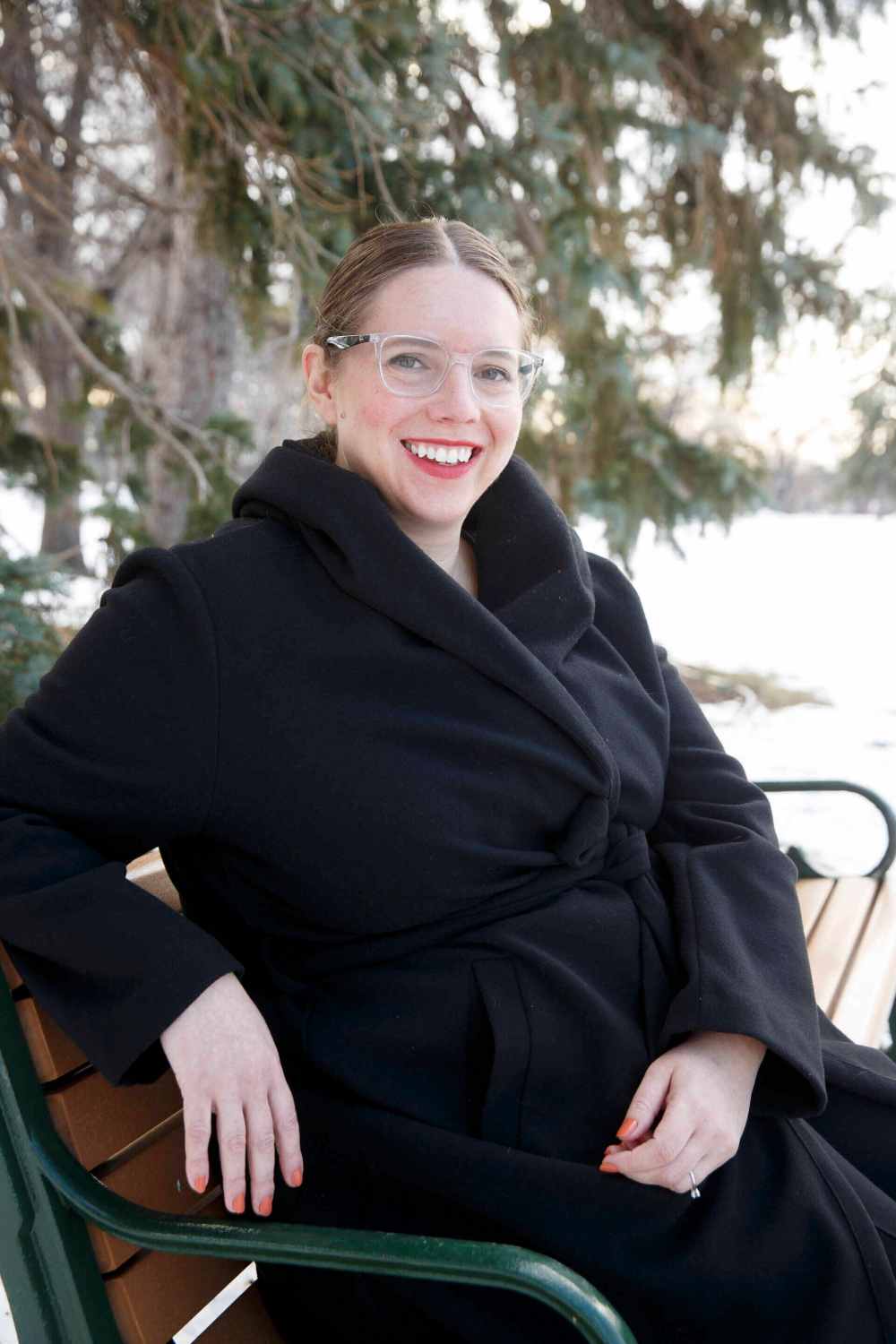
It’s also nobody’s business. Unless someone wants to talk about their motivations for drinking or not drinking, there should be no obligation to share, says Smitheringale, from the Addictions Foundation. Respecting personal choices and boundaries without prying is one way friends and family can support the non-drinkers in their lives.
“If someone declines a beverage, accept that — don’t push or offer more options they don’t want. They don’t need to give you or anyone a reason for saying no,” he says. “And if someone knows they’re going to feel a whole bunch of external pressure to drink, then maybe you avoid that situation.”
Everyone who spoke with the Free Press shared similar tactics for maintaining sobriety during the holidays — and anytime, really.
When it comes to house parties, communicating intentions for not drinking ahead of time with the host, your date or a trusted guest can help with accountability. Arriving with your own beverages also ensures you won’t be stuck drinking tap water.
“Carbonated drinks, for me, they’re a lifesaver,” Bromley says. “And you have a drink in your hand, so it kind of sits in that spot of repetition — it’s almost like when you’re quitting smoking and you miss that feeling of having a cigarette between your fingers.”
“Carbonated drinks, for me, they’re a lifesaver.” – Jeff Bromley, sober
If a holiday function is happening at a restaurant or bar, don’t be afraid to ask about non-alcoholic beverage options. Over the last decade, Murdock has noticed a huge increase in the availability of zero-proof cocktails locally.
“It feels so inclusive and exciting,” she says. “(Instead of) having to order something without alcohol, you actually feel like you’re getting the full experience.”
A distillery is, perhaps, the last place someone would expect to find an extensive non-alcoholic drink menu, but it’s been part of Patent 5’s business model from Day 1.
“It felt important to make room for people choosing to abstain,” says Callan Anderson, general manager of the Exchange District distillery and cocktail bar. “It has been really popular and to the point that sometimes people will come in, look at the list and say, ‘Oh, I’d really like to try that, can I add some alcohol?’”

However, Anderson, who has worked in the bar industry for nine years, wants to be clear: the bar doesn’t serve mocktails, a term that suggests a lesser imitation of an alcoholic beverage. These are just cocktails without alcohol. And they’re not an afterthought.
“They’re given equal weight of thought and care and attention,” she says, pointing to the Violet Beauregard, a refreshment with blueberry shrub (a vinegar-based syrup), ginger syrup, lime juice, black walnut bitters and soda, as an example.
When it comes to making holiday parties more inclusive, she recommends offering guests something that can be enjoyed with or without alcohol, like a bowl of punch with spirits on the side.
As a bartender, Anderson is excited about the future and the possibilities of a drinking culture that doesn’t revolve around booze.
“I think the non-alcoholic drinks revolution, if you will, is only expanding,” she says. “Hopefully, we can rethink cocktail bars to be more social places than places to go and exclusively get drunk.”
While it’s easy to get wrapped up in the expectations of merry-making, Smitheringale says focusing on other parts of the season can make it easier to abstain.
“The opposite of addiction is not sobriety, it’s connection,” he says, paraphrasing a quote from British journalist Johann Hari. “Remember what the positive things of the holidays are; (perhaps) that’s going to be reconnecting with family or friends.”

For Bromley, sobriety — and the mental clarity that comes with it — has made the holidays more enjoyable.
“Not to sound shmaltzy or corny or anything, but it’s kind of a gift to give to ourselves and to the people around us,” he says. “To be there, you know, to be present.”
If you or someone you know is struggling with alcohol, call or text the Manitoba Addictions Helpline at 1-855-662-6605 or visit afm.mb.ca for information about local resources.
eva.wasney@freepress.mb.ca
Twitter: @evawasney

Our newsroom depends on a growing audience of readers to power our journalism. If you are not a paid reader, please consider becoming a subscriber.
Our newsroom depends on its audience of readers to power our journalism. Thank you for your support.


